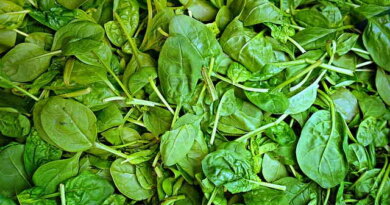Kombucha and MS: What the Experts Say
There’s been a lot of buzz lately that kombucha, a fermented drink that’s become popular on supermarket shelves, may help with multiple sclerosis (MS).
The fizzy drink, which is made from tea, sugar, bacteria, and yeast, is rich with probiotics, which are good for your digestive system. Kombucha tea also has polyphenols, which are antioxidants and may decrease inflammation. And it boasts B vitamins, essential minerals, and organic acids, which may fight bacterial growth.
“I recommend kombucha and other fermented foods to all of my MS patients,” says Darin Ingels, ND, a licensed naturopathic doctor in Irvine, CA, who has MS and drinks kombucha regularly. “I find it helps keep me regular and has helped improve my digestive function.”
How Might Kombucha Help?
Recent research suggests that the bacteria naturally living in your gut — your gut microbiome — play a role in MS. Experts have found that the gut microbiome of people with MS is different from that of people who don’t have MS. With MS, you may have more bacteria that are linked to inflammation.
Kombucha may help MS because it changes your gut microbiome. “Fermented foods like kombucha provide a natural source of beneficial bacteria and yeast, or probiotics, which help improve digestion and gut health,” Ingles says.
What the Experts Say
But it’s not clear if kombucha directly impacts MS.
“The gut microbiome has become a very important field in many conditions, including MS,” says Brian Steingo, MD, a neurologist with Sunrise Medical Group in Sunrise, FL. But there isn’t scientific evidence to support the use of kombucha to modify the gut microbiome. While some animal studies suggest it may improve the course of MS, more research is needed.
“MS experts do not agree, and most neurologists don’t recommend kombucha tea as part of a treatment plan since there are no large-scale human studies showing kombucha tea can help prevent, modify, or reverse MS,” Ingles says.
Some doctors say it’s best to use caution or not try kombucha at all. Others, like some doctors with a nutritional focus, do recommend it because of the link between gut health and autoimmune disease.
Ingels, who uses diet, nutrition, exercise, and other natural methods to help manage his MS symptoms, says kombucha fits as part of his overarching plan. “I eat a lot of fermented foods as part of my dietary regimen, including kombucha tea,” he says. “The health benefits are worth giving it a shot,” he says. Other fermented foods with similar health benefits include yogurt, kefir, raw pickles, and sauerkraut.
Continued
How to Take Kombucha
If you’d like to add kombucha to your diet, opt for 4-6 ounces, three to four times a week, Ingles says. The CDC recommends drinking no more than 12 ounces in one day. Keep in mind that most bottles of kombucha you buy at the store are 16 ounces.
You can buy kombucha at health food stores and many supermarkets. Ingels says to choose one that’s organic.
He also suggests opting for high-quality tea brands because they’re often lower in sugar and have no added artificial ingredients. Kombucha can be made with white sugar, turbinado sugar, agave, or honey.
If you drink kombucha regularly, you can save money by making it yourself. Try searching online for recipes that use water, tea bags, sugar beets, and a “starter liquid” from store-bought kombucha. To avoid contamination, be sure you have a clean, sterile environment.
You may not like kombucha at first. It has a strong vinegar taste that can take some getting used to. If you try one drink and don’t like it, try another brand to see if you like it better.
Side Effects and Risks of Kombucha
You may feel bloated or have gas when you first start drinking kombucha. “This usually gets better after your gut gets used to it,” Ingles says. If you drink too much, you may get diarrhea.
Since kombucha is usually made from black or green tea, you may notice side effects similar to caffeine. You may feel nervous, jittery, or have heart palpitations.
Other side effects are headaches and nausea.
More serious risks, which come with heavy use, include ketoacidosis, which is too much acid in your blood, lead toxicity, or an allergic reaction.
Also, kombucha isn’t calorie free. An unflavored 8-ounce serving has about 30 calories and 2 to 3 ounces of sugar.
Who Shouldn’t Drink Kombucha
It’s best to avoid kombucha if you’re pregnant, have liver disease, kidney disease, HIV, alcohol dependency, or a compromised immune system because you have a higher risk of complications.
Young children should avoid drinking kombucha.
Talk to your doctor to see if kombucha is safe for you.




